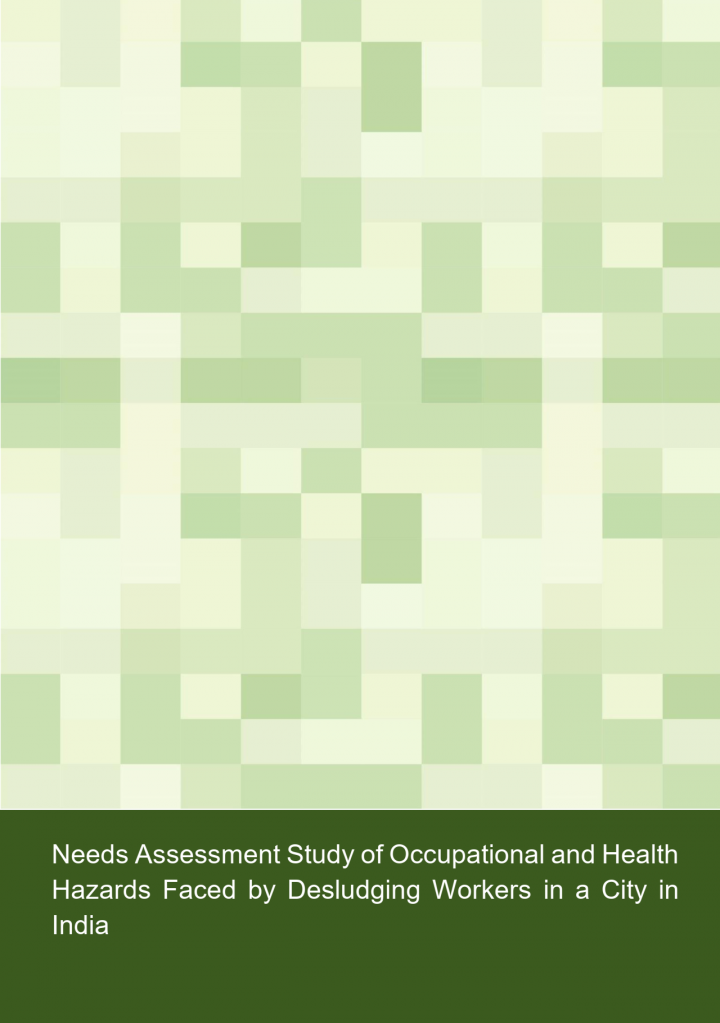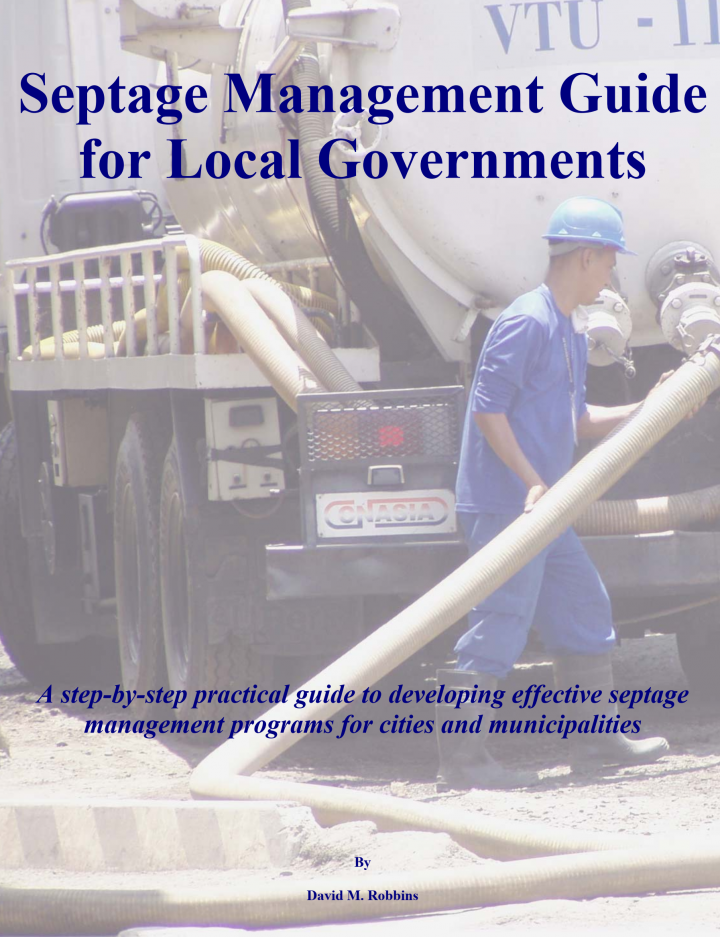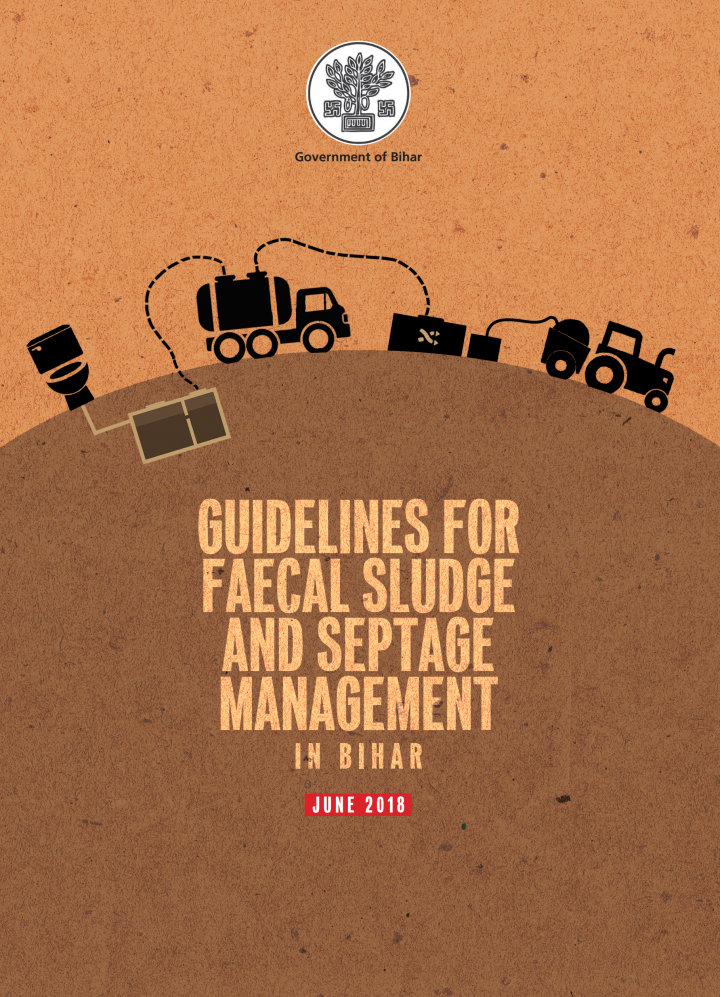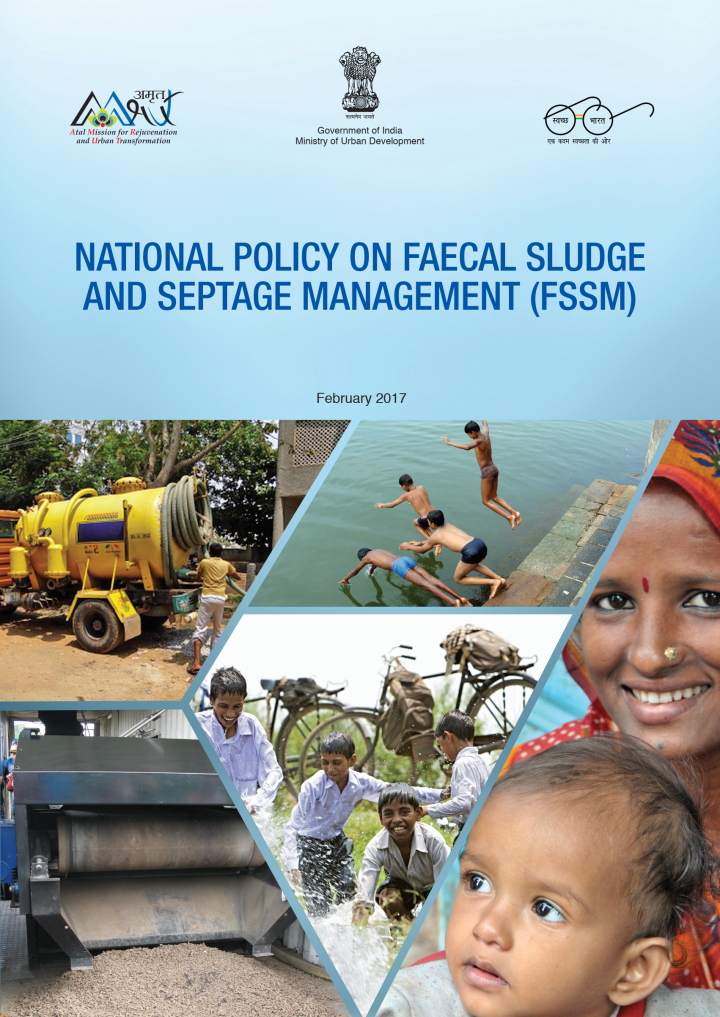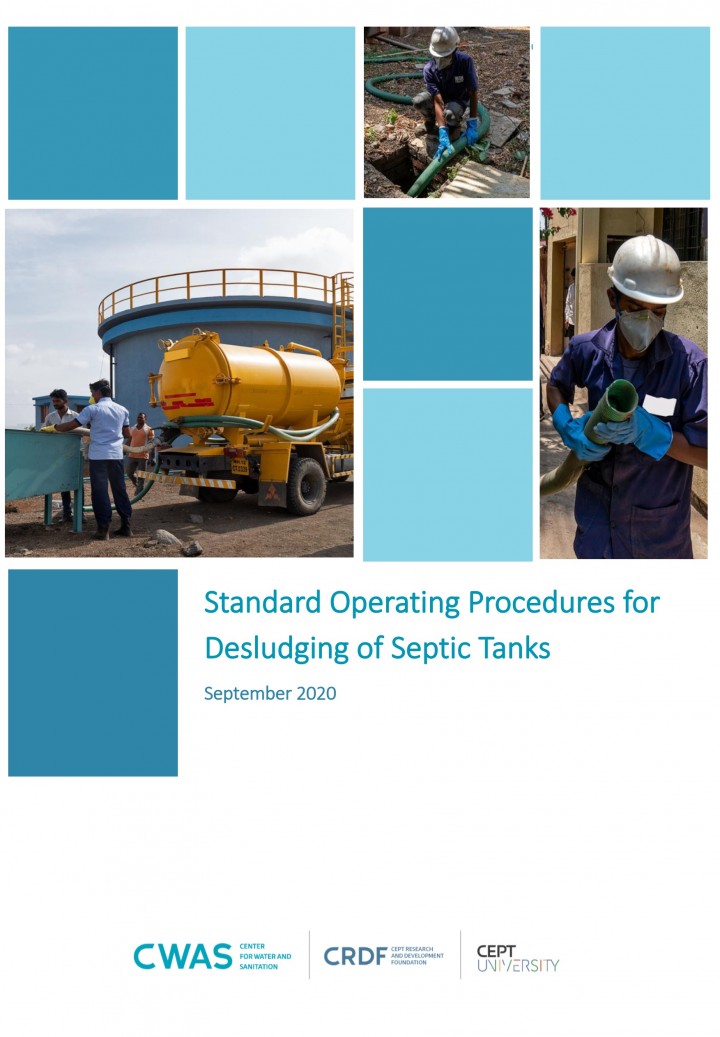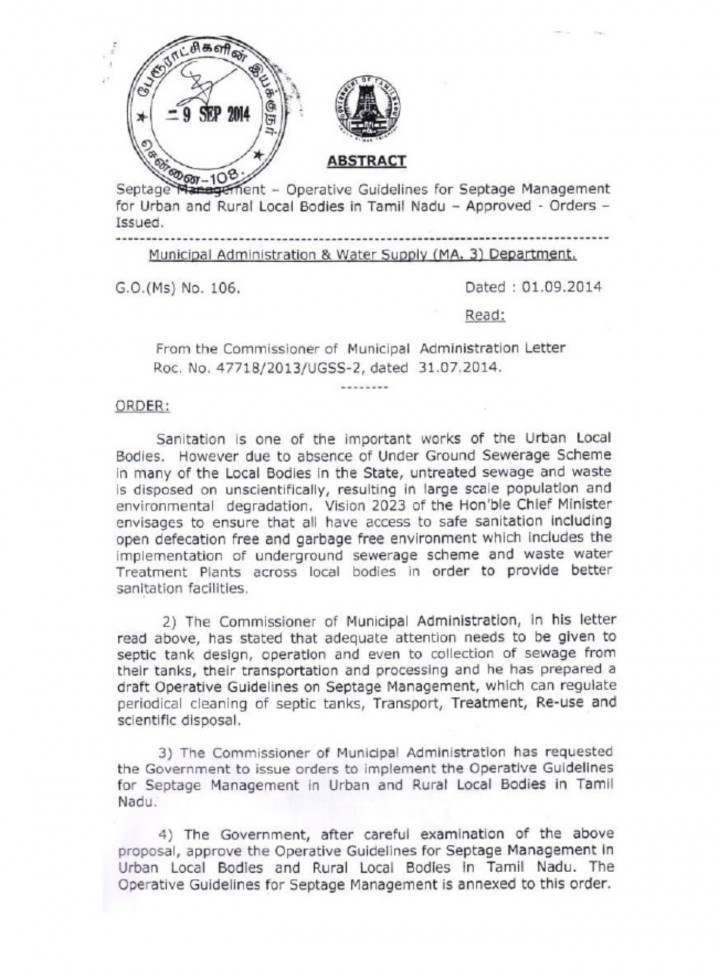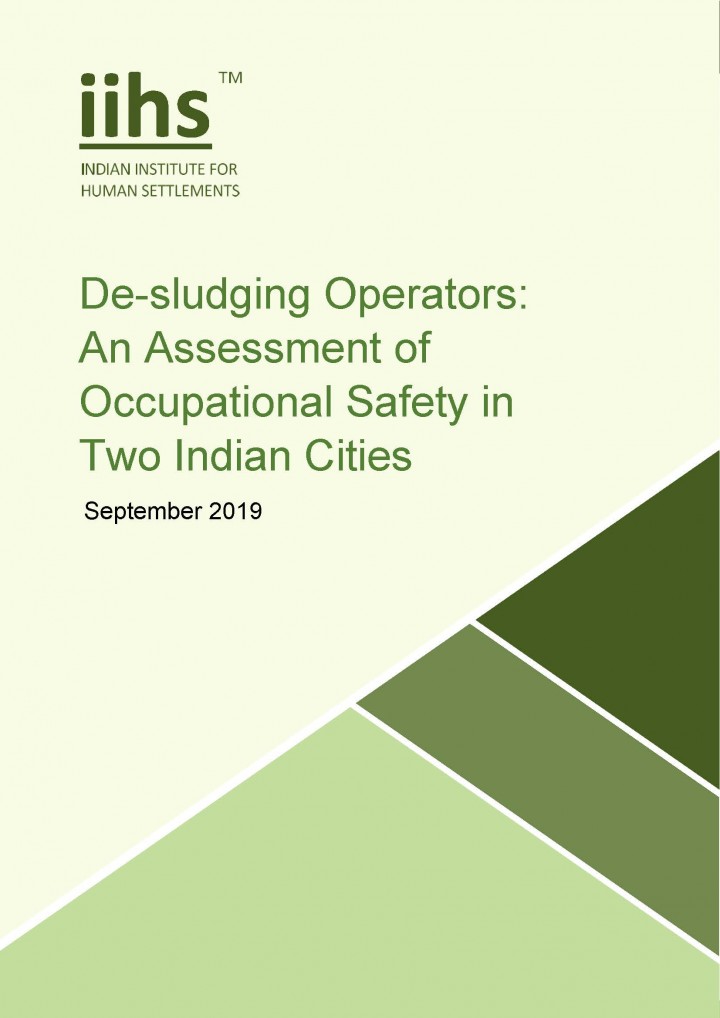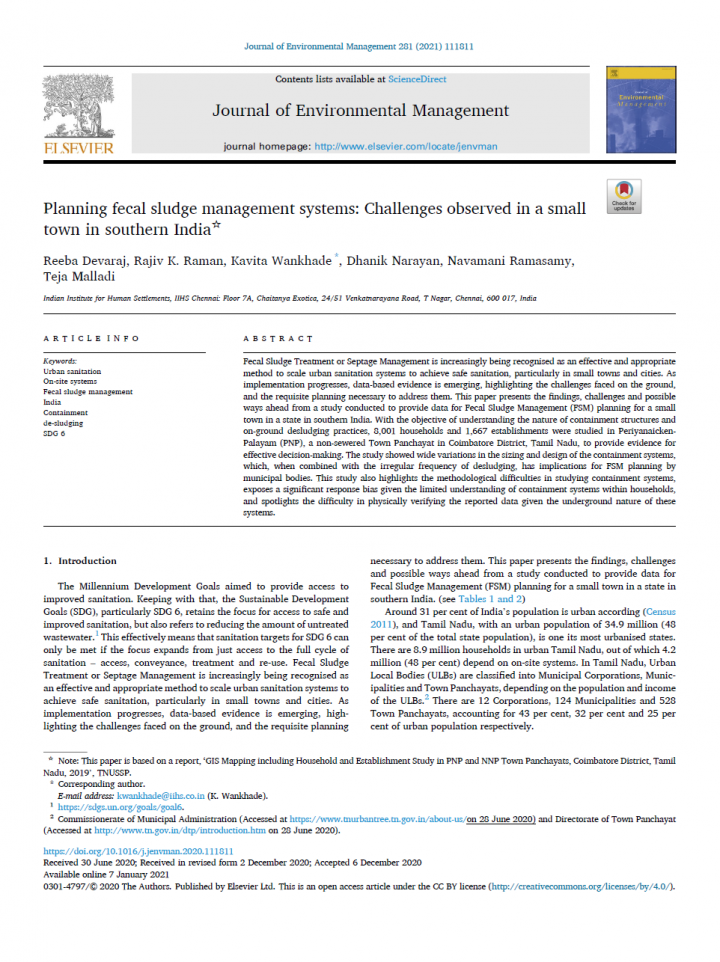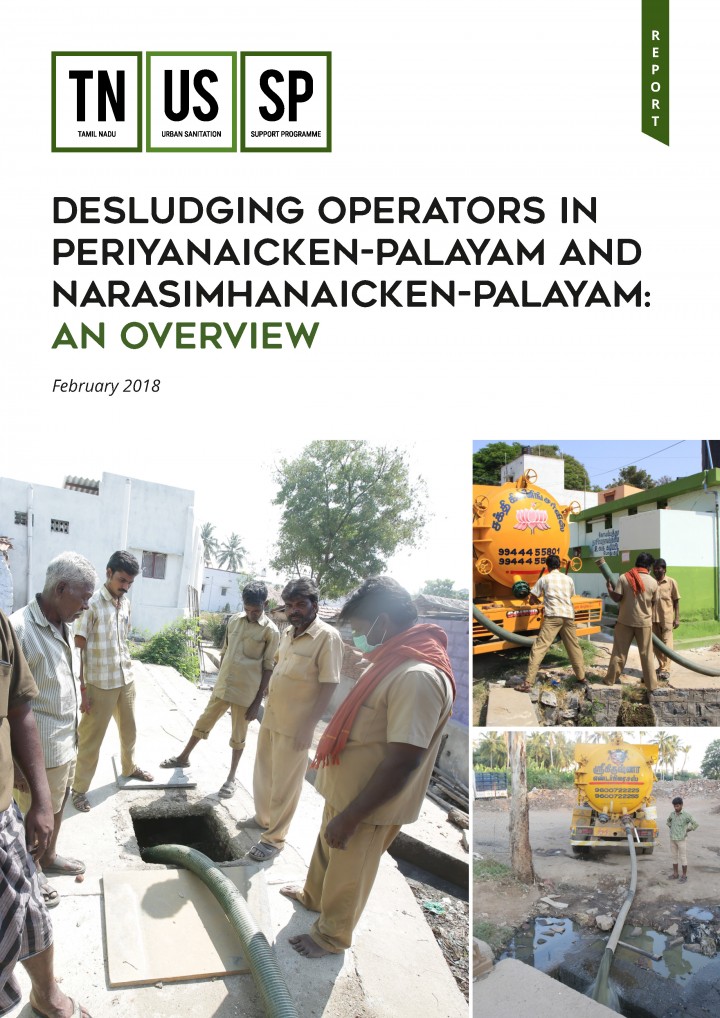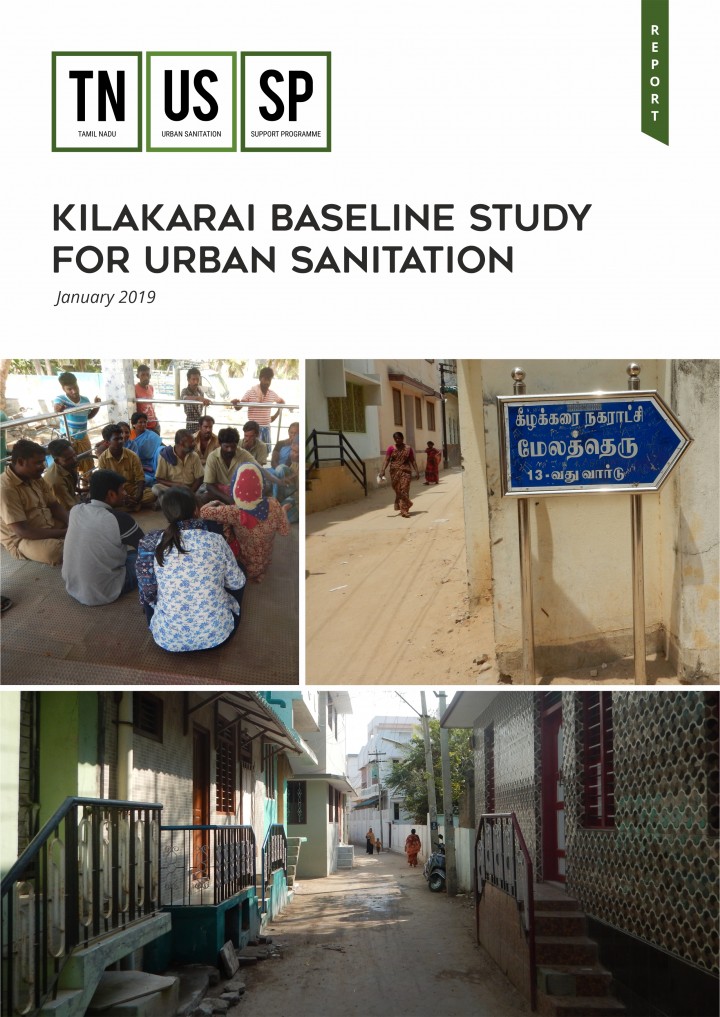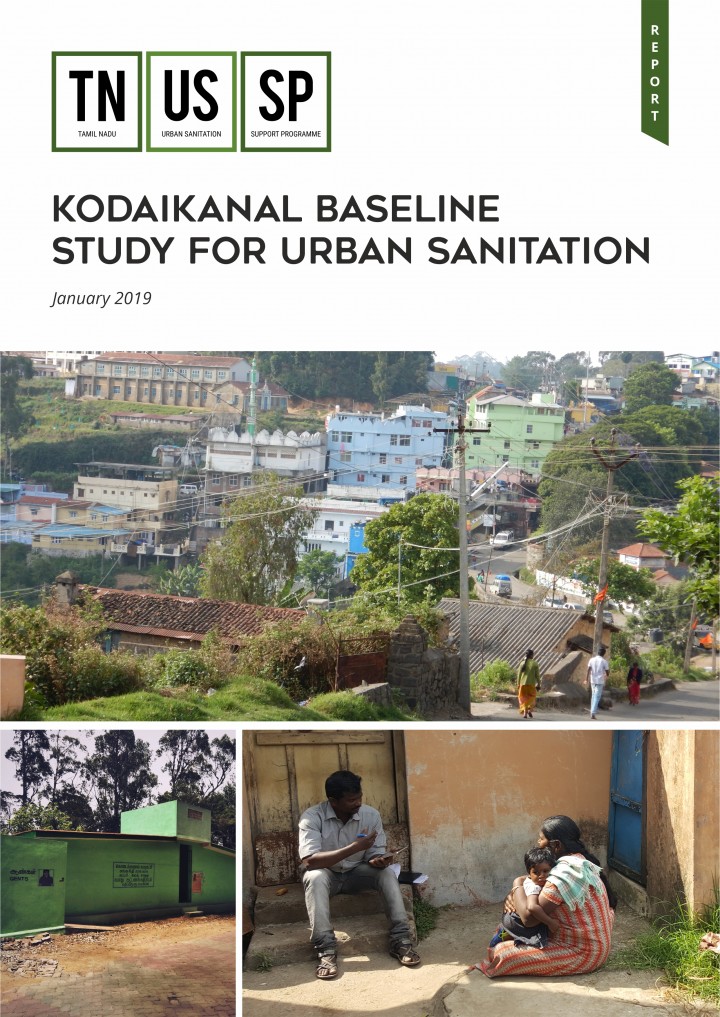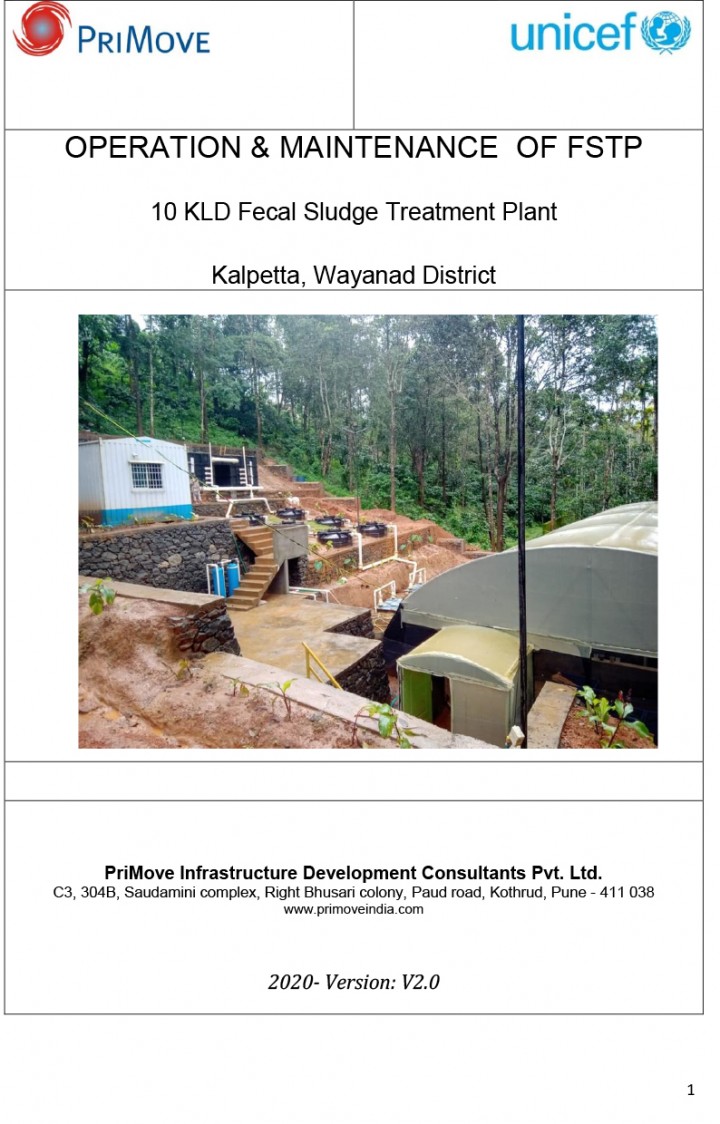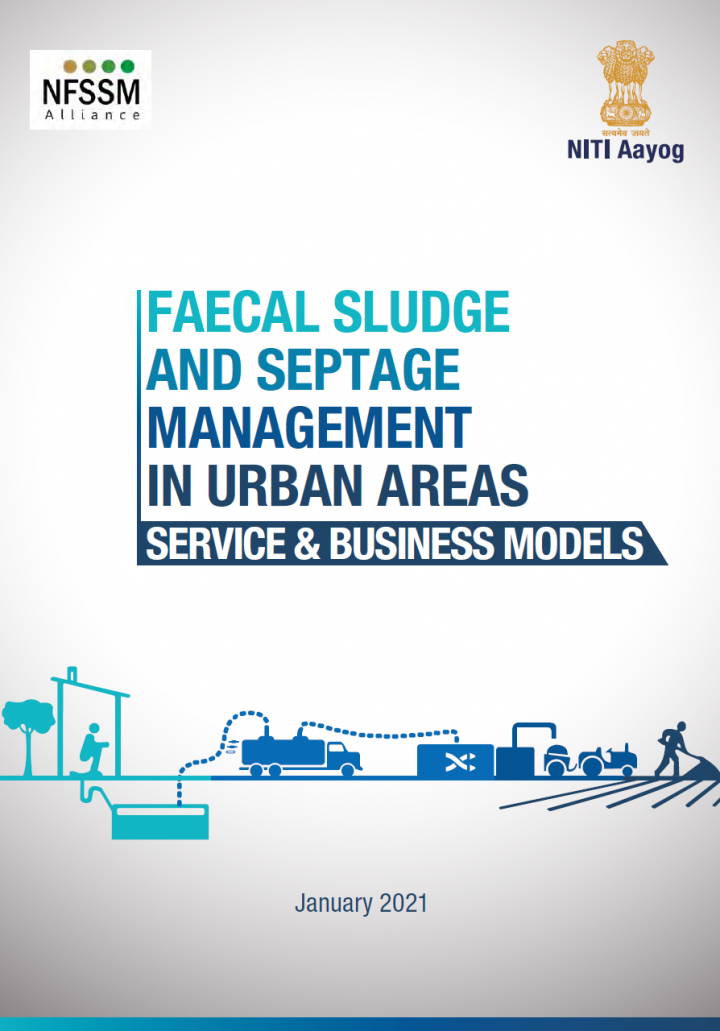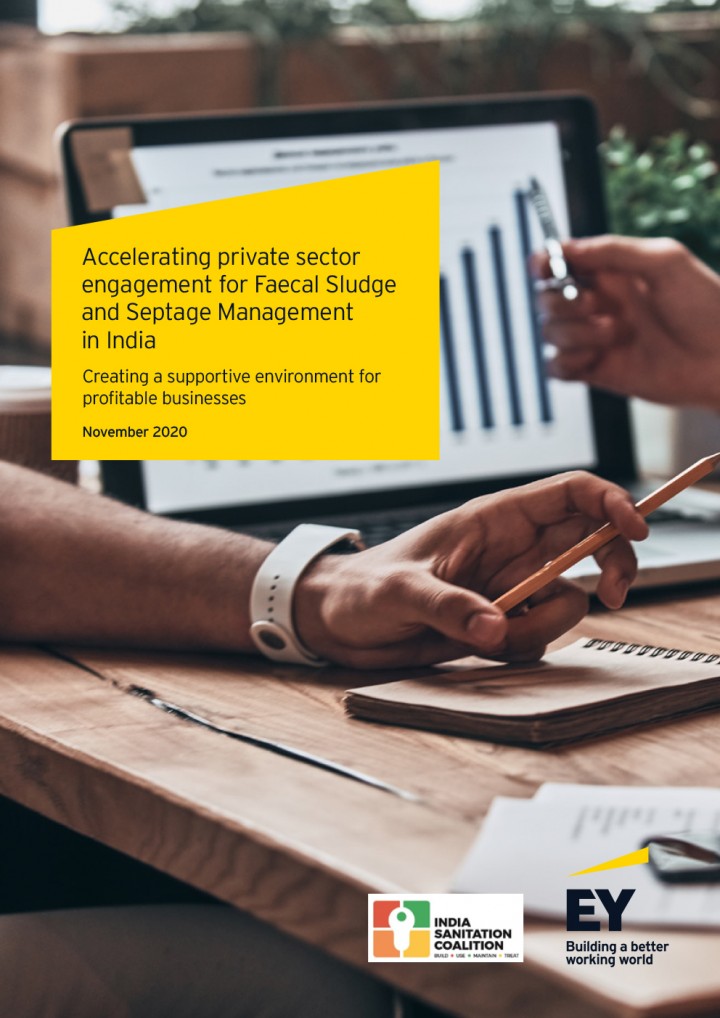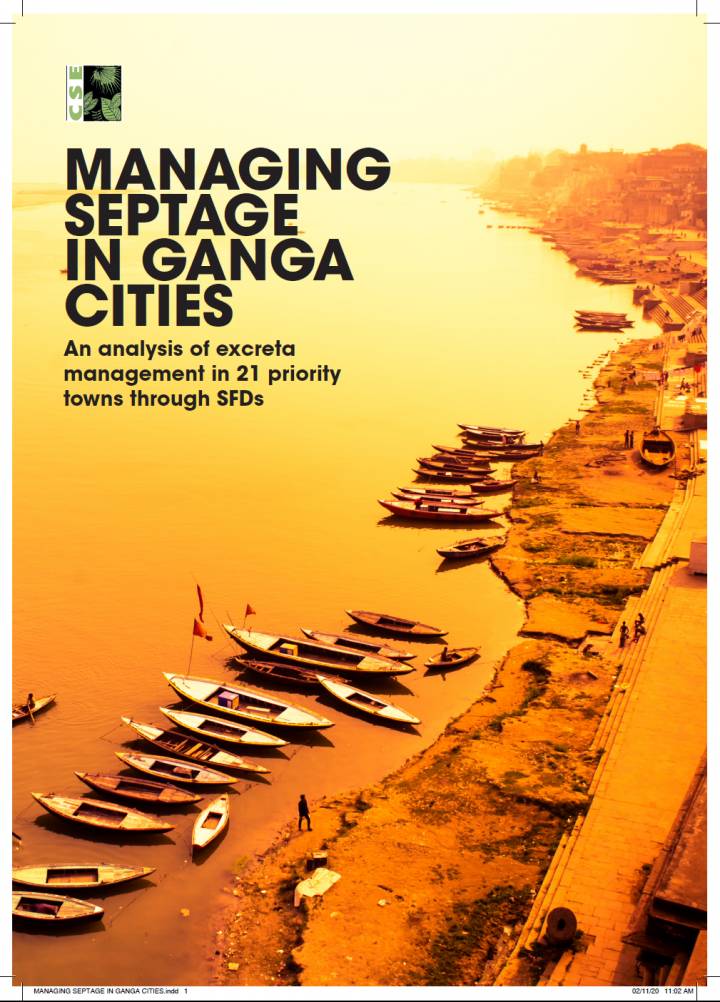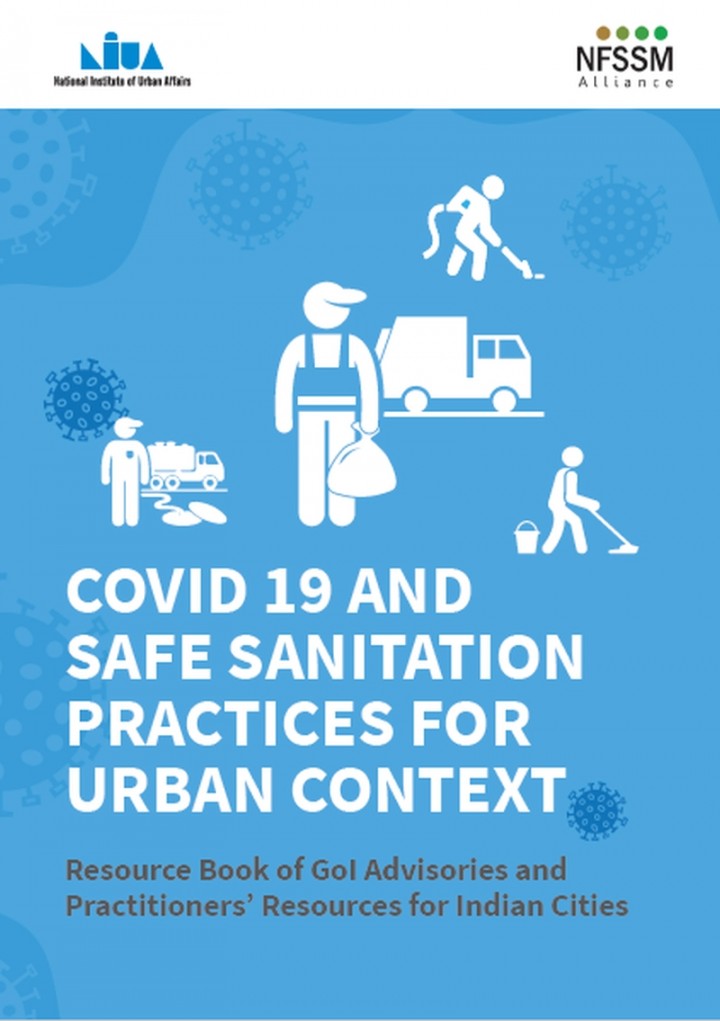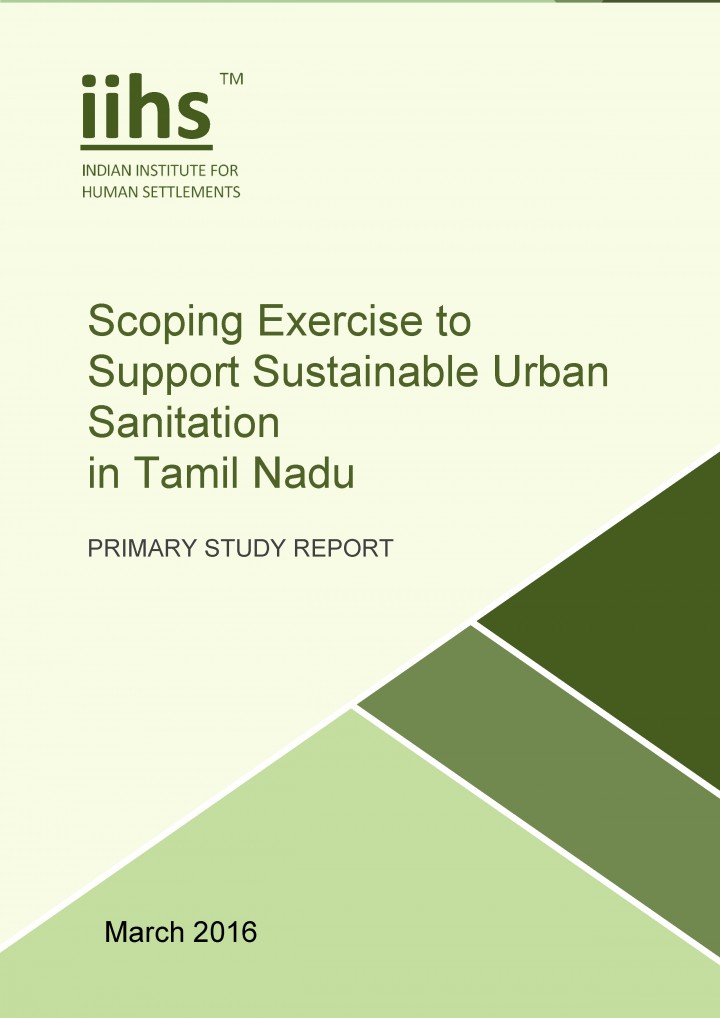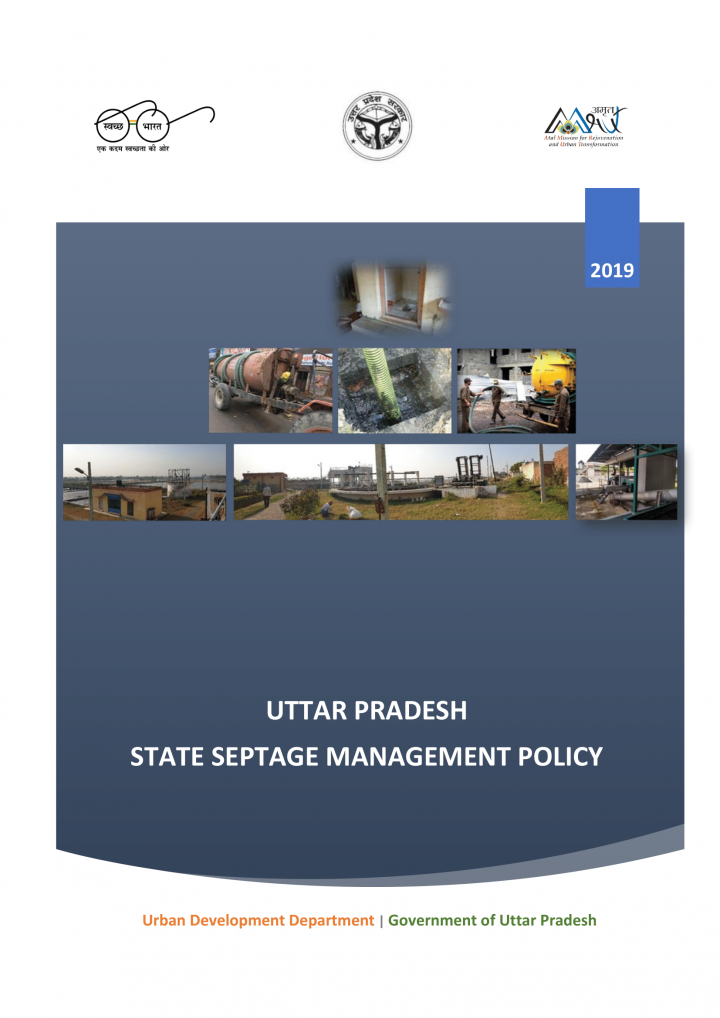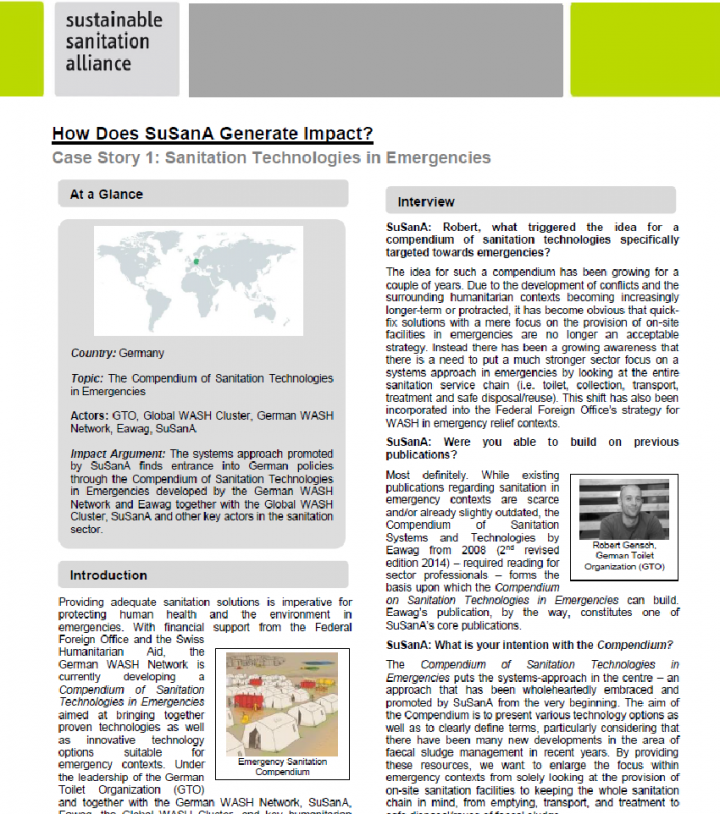IIHS (2019) Needs Assessment Study of Occupational and Health Hazards Faced by Desludging Workers in a City in India
Safe collection, handling and transport of fecal sludge is an integral part of septage management. Limited attention has been paid to the safe collection, transport, disposal and treatment of human excreta from septic tanks. Motorised emptying and transport involves a truck with a standalone or mounted vacuum pump along with a storage tank that is used to empty and transport septage. Typically, these desludging trucks […]
David M. Robbins (2007) Septage Management Guide for Local Governments A step-by-step practical guide to developing effective septage management programs for cities and municipalities
The direct relationship between diseases such as cholera, hepatitis and dysentery and the unrestricted discharges of residential sewage is well documented. The septic tank is a simple device and when designed, installed, and operated properly, can serve as the first step in the sewage treatment process, which transforms human waste into a manageable effluent. Effluent can be further treated, reused or disposed of, thus breaking […]
Govt. of Bihar (2018) Guidelines for Faecal Sludge and Septage Management in Bihar
According to Census 2011, Bihar reported 11.67 million urban population i.e. 11.25% of total population of state, dwelling in 199 urban centers (which accounts 3.14% of total urban population of country). The state has 143 statutory towns and 56 census towns. The state has 143 urban local bodies(ULBs) including 12 Municipal Corporation (Nagar Nigam), 46 Nagar Palika Parishad and 85 Nagar Panchayat. State ULBs with […]
Government of India Ministry of Urban Development (2017) National Policy on Faecal Sludge and Septage Management (FSSM)
According to Census 2011, India’s urban population is 377 million or 31% of the total population, which is expected to increase to 600 million by 2031. The Census 2011 also showed that in 4,041 statutory towns, 7.90 million households (HHs) do not have access to toilets and defecate in the opena1. Under the Swachh Bharat Mission (SBM), it is envisaged that nearly 80% of these […]
Center for Water and Sanitation CRDF; CEPT University (2020) Standard Operating Procedures for Desludging of Septic Tanks
It is known that eradicating open defecation is only half the battle. For improving sanitation, faecal sludge and wastewater also needs to be safely managed. It is in this context that Government of India, Ministry of Housing and Urban Affairs (MoHUA) issued a National Faecal Sludge and Septage Management (FSSM) Policy3 . It recommends regular desludging of septic tanks through a systematic extraction and collection […]
Municipality Administration and Water Supply Department (2014) Operative Guidelines for Septage Management for urban and Local Rural bodies in Tamil Nadu
The partially treated sewage that is stored in a septic tank is commonly called as Septage. It includes the liquids, solids (sludge), as well as the fats, oils and grease (scum) that accumulate in septic tanks over time. Septage management includes the entire process of design, collection, safe treatment& disposal of septage based on generation of sewage. A comprehensive program that regulates periodic septic tank […]
Indian Institute for Human Settlements, India (2019) De-sludging Operators: An Assessment of Occupational Safety in Two Indian Cities
Safe collection, handling and transport of fecal sludge is an integral part of septage management. Limited attention has been paid to the safe collection, transport, disposal and treatment of human excreta from septic tanks. A study was conducted in two cities in India to understand the current desludging practices, the underlying reasons for current occupational practices and hazards, relevance and sufficiency of personal protection equipment, […]
Devaraj, R., Raman, R. K., Wankhade, K., Narayan, D., Ramasamy, N., Malladi, T. (2021) Planning fecal sludge management systems Challenges observed in a small town in southern India
Fecal Sludge Treatment or Septage Management is increasingly being recognised as an effective and appropriate method to scale urban sanitation systems to achieve safe sanitation, particularly in small towns and cities. As implementation progresses, data-based evidence is emerging, highlighting the challenges faced on the ground, and the requisite planning necessary to address them. This paper presents the findings, challenges and possible ways ahead from a […]
TNUSSP (2018) Desludging Operators in Periyanaicken-Palayam and Narasimhanaicken-Palayam: An Overview
Safe collection and safe disposal of fecal sludge is a critical component of septage management in which desludging operators play a central role. In order to understand their work, consultations were conducted with desludging operators in the Periyanaicken Palayam and Narasimhanaicken Palayam town panchayats of Coimbatore district. These consultations aimed to understand the current desludging practices, the different kinds of business models and the overall […]
TNUSSP (2019) Kilakarai Baseline Study for Urban Sanitation
TNUSSP carried out a baseline study in Kilakarai municipality to understand the current situation of access to sanitation and arrangements made for fecal sludge management in households and establishments. The findings from the study provide an overview of the gaps and challenges across the sanitation chain in Kilakarai in effective implementation and monitoring of septage management.
TNUSSP (2019) Kodaikanal Baseline Study for Urban Sanitation
TNUSSP carried out a baseline study in Kodaikanal municipality to understand the current situation of access to sanitation and arrangements made for fecal sludge management in households and establishments. The findings from the study provide an overview of the gaps and challenges across the sanitation chain in Kodaikanal in effective implementation and monitoring of septage management.
Primove Infrastructure Development Consultants (2020) Operation and Maintenance Manual for the Wayanad FSTP
Kalpetta is a town and a municipality in the Wayanad district, state of Kerala, India. The FSTP uses vermifiltration where worm-based sludge treatment is combined with water filtration to digest organic matter present in septage. The worms need only air, water, and sludge (food) to operate efficiently as a part of the vermifiltration system. The Tiger Biofilter technique is based on vermifiltration. The technology uses a […]
NFSSM Alliance & Niti Aayog (2021) Faecal Sludge and Septage Management inUrban Areas Service & Business Models
The Faecal Sludge and Septage Management: Service Business Models shares leading practices and innovations to improve how faecal sludge is managed, and how to expand services to the millions of people living in thousands of cities in urban India, lacking access to safely managed sanitation.
Ernst and Young India and India Sanitation Coalition (2020) Accelerating private sector engagement for Faecal Sludge and Septage Management in India Creating a supportive environment for profitable businesses
This report explores ways by which private sector engagement in FSSM can be successfully accelerated by looking at potential business opportunities and challenges in FSSM, lessons that can be learned from current FSSM practice and finally, key takeaways for the key stakeholders in the ecosystem. While each of these segments touch upon separate aspects of the FSSM ecosystem, the common thread of how private […]
Luthra, B., Gupta, E., (2020) Managing Septage in Ganga Cities An analysis of excreta management in 21 priority towns through SFDs
Namami Gange (a national mission for cleaning the Ganga River) is not just about physical cleaning of the river, it is about rejuvenating it and ensuring that it is ever flowing (Aviral) with clean (Nirmal) water. To achieve the same, a comprehensive approach is required which cuts across a lot of sectors. Human excreta (wastewater, faecal sludge, and supernatant) is one of the main causes […]
NIUA (2020) COVID 19 and Safe Sanitation Practices for Urban Context
This Resource Book is a compilation of important Govt of India Advisories and other Knowledge Resources relating to Urban Sanitation and COVID. National Institute of Urban Affairs (NIUA) along with the National Faecal Sludge and Septage Management (NFSSM) Alliance Partners, has taken up this initiative of creating a repository of important government advisories and practitioners’ guidance material for Urban Local Bodies (ULBs), state governments, elected […]
TNUSSP (2016) Scoping Exercise to Support Sustainable Urban Sanitation in Tamil Nadu: Primary Study Report
With a view to scope the tasks under the Tamil Nadu sanitation mission, IIHS carried out a scoping exercise in 2015 to gain an in-depth understanding of the current arrangements and practices in the full cycle of sanitation. The study assessed a range of issues across the sanitation cycle including design and construction practices of on-site sanitation systems, septage collection and waste disposal in Pammal […]
Urban Development Department - Government of Uttar Pradesh (2019) Uttar Pradesh State Septage Management Policy
The goal of the Uttar Pradesh State Septage Management Policy (UPSSMP) is to improve water quality and protect public health in urban areas of the State by 2023. The objective is to enhance the ability of local implementers to build and operate septage treatment systems for urban centers and promote the behavior change and supporting environment needed for systems to be effective and sustainable. The […]
Various authors (2019) FSM5 - 5th International Faecal Sludge Management Conference Materials
Presentations (download from conference website, see external link below, or go to: https://fsm5.susana.org/en/downloads/conference-materials): Conference convenors: Bill & Melinda Gates Foundation BORDA Eawag-Sandec Deutsche Gesellschaft für Internationale Zusammenarbeit (GIZ) GmbH Inclusive Sanitation in Practice (IPS) Sustainable Sanitation Alliance (SuSanA) University of KwaZulu-Natal University of Technology Sydney Water Research Commission (WRC) DAY 1, OPENING PLENARY 1. BAWA, K., “The Ngor Declaration on Sanitation and Hygiene” 2. NAIDOO, D., “Building the World’s First Sanitation Unicorn” **DAY 1, TRACK 1: RESEARCH […]
SuSanA (2019) How does SuSanA generate impact? A compilation of SuSanA Impact Stories
Selected sanitation projects from different parts of the world were requested to report on how SuSanA had influenced the work carried out. This resulted in a variety of evidence indicating that SuSanA can have a far-reaching effect providing expertise, convenor of meetings, a source of online information, networked contacts, discussion platform and a place to disseminate reports and publications. Case Story 1: Sanitation Technologies in Emergencies Case […]
